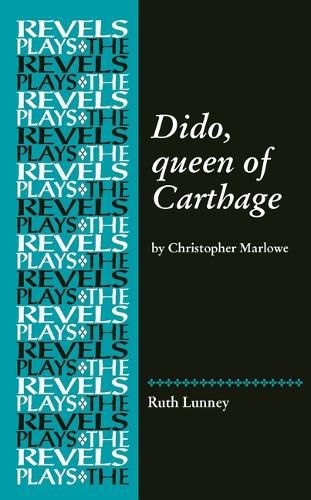Readings Newsletter
Become a Readings Member to make your shopping experience even easier.
Sign in or sign up for free!
You’re not far away from qualifying for FREE standard shipping within Australia
You’ve qualified for FREE standard shipping within Australia
The cart is loading…






A city burns, and a queen burns for love: Dido, Queen of Carthage re-imagines one of the great legendary stories.
The encounter between a wandering hero and an African queen engenders love and loss, eroticism and absurdity, childish simplicity and compelling eloquence. Written for children to perform in the 1580s, Dido is nonetheless a remarkable play, revolutionary in its approach to character, blank verse, and audiences.
This volume is the first single-text scholarly edition in English. It is an indispensable resource for scholars, students, and theatre practitioners.
The edition features an accessible text, lightly punctuated for ease of reading and speaking. It incorporates new research into authorship (which indicates that Marlowe wrote the play), a detailed analysis of Dido's sources, and a survey of criticism; it assesses the evidence for early performances and provides extensive information about modern productions.
$9.00 standard shipping within Australia
FREE standard shipping within Australia for orders over $100.00
Express & International shipping calculated at checkout
A city burns, and a queen burns for love: Dido, Queen of Carthage re-imagines one of the great legendary stories.
The encounter between a wandering hero and an African queen engenders love and loss, eroticism and absurdity, childish simplicity and compelling eloquence. Written for children to perform in the 1580s, Dido is nonetheless a remarkable play, revolutionary in its approach to character, blank verse, and audiences.
This volume is the first single-text scholarly edition in English. It is an indispensable resource for scholars, students, and theatre practitioners.
The edition features an accessible text, lightly punctuated for ease of reading and speaking. It incorporates new research into authorship (which indicates that Marlowe wrote the play), a detailed analysis of Dido's sources, and a survey of criticism; it assesses the evidence for early performances and provides extensive information about modern productions.